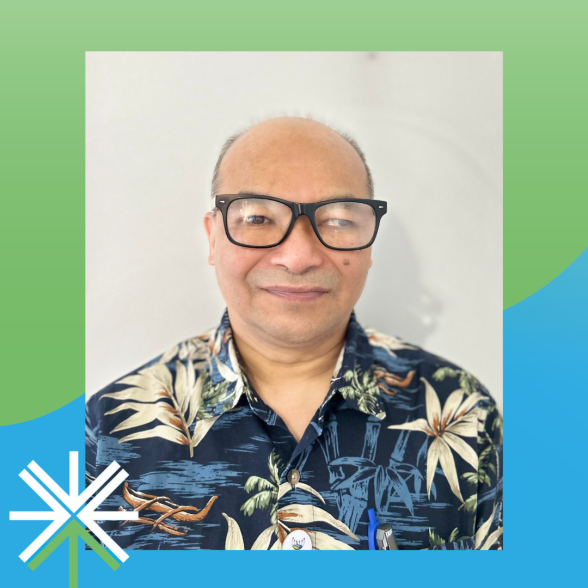Around the world, people with dementia face an acute lack of culturally-safe care in their communities. Culturally-safe dementia care (CSDC) is a new and evolving concept referring to any measures that create and support the empowerment of cultural identity, sensitivity, and well-being for people with dementia and other cognitive disabilities. Both Indigenous and non-Indigenous populations are struggling to access CSDC, contributing to the global challenge posed by dementia as a significant public health crisis. National dementia plans, focusing on personalized strategies and building community and workforce capabilities, are crucial in addressing this issue. I advocated for CSDC policy as a global agenda at the 2023 Alzheimer's Association International Conference in Amsterdam on July 19, 2023, and urged the World Health Organization (WHO) and international forums to prioritize CSDC among global public health leaders, advocates, and policymakers due to a lack of policy framework and evidence-based research for accessible and affordable dementia care worldwide.
The WHO Dementia Plan Guide (2018) identified traditional healers, community leaders, and religious figures as crucial "community stakeholders" for dementia care and reduction worldwide. Therefore, it's important for WHO to take the lead in creating policies and plans that recognize, engage, educate, provide access to, and empower these individuals in dementia care and reduction at the community level around the world. This is necessary because there is a lack of evidence-based research and a policy framework on CSDC from a global perspective. It is vital to develop a country strategy and plan, a policy framework, and evidence-based research to recognize and empower traditional healers as “community stakeholders” for dementia care and prevention. This will support the implementation of the WHO Global Action Plan on the Public Health Response to Dementia (2017–2025) across the 194 WHO member states, as well as Alzheimer’s Disease International (ADI) and its 105 NGO community partners globally.
The CSDC policy is inevitable to empower healthcare providers, traditional healers, and local community and religious leaders by aligning with their perspectives to implement CSDC through community engagement. This involves creating CSDC plans, policies, and guidelines through global collaboration with local community advisory groups and councils. Both Indigenous and non-Indigenous traditional healers, along with community and religious leaders, are considered "gatekeepers" to healthcare providers, helping bridge the dementia equity gap and establish dementia-inclusive communities with support systems at the local level. Organizations such as Alzheimer’s Disease International (ADI), and the Dementia Alliance International (DAI) play a crucial role in advocating for CSDC on a global scale among policymakers and leaders focused on dementia risk reduction and prevention.
According to the ADI, in May 2023, national dementia plans existed in 46 countries. The WHO target of 146 plans (75% of Member States) by 2025 is unattainable, and ADI is urging the WHO to extend the Global Action Plan until 2029 to meet the targets. Despite this, the role of traditional healers and community leaders as "community stakeholders" or "community partners" remains globally marginalized. In the United States, community partners and stakeholders, including tribal leaders and groups, are vehicles for reaching underserved individuals with dementia. Furthermore, no one is leaving behind dementia in this aging world; thus, CSDC policies will undoubtedly be at the forefront of dementia care and prevention worldwide.
References
Shrestha HL, McArthur M, Rowe RL, Wabie J, Maar M, Walker JD. Exploring Traditional Healing and Medicine in Dementia Care for Indigenous Populations in North America, Australia, and New Zealand: A Policy Advocacy and Practice. Alzheimer’s & Dementia. 2022 Dec;18(S11).
World Health Organization (WHO). Global status report on the public health response to dementia [Internet]. www.who.int. 2021. Available from: /publications/i/item/9789240033245
World Health Organization. Towards a dementia plan: a WHO guide [Internet]. 2018. Available from: /iris/bitstream/handle/10665/272642/9789241514132-eng.pdf?sequence=1&isAllowed=y
Benoist C, Weidner W, Barbarino P, Arthurto L, Aubert L, Paatalo T, et al. From Plan to Impact VI Making every step count [Internet]. 2023 May [cited 2023 Aug 23]. Available from: /u/From-Plan-to-Impact-VI.pdf
Splaine Consulting. Tribal Law and Policy, Alzheimer’s Disease and Related Dementia Issues, 2021, International Association for Indigenous Ageing. Available from: /new-report-tribal-law-policy-alzheimers-disease-and-related-dementia-issues/
